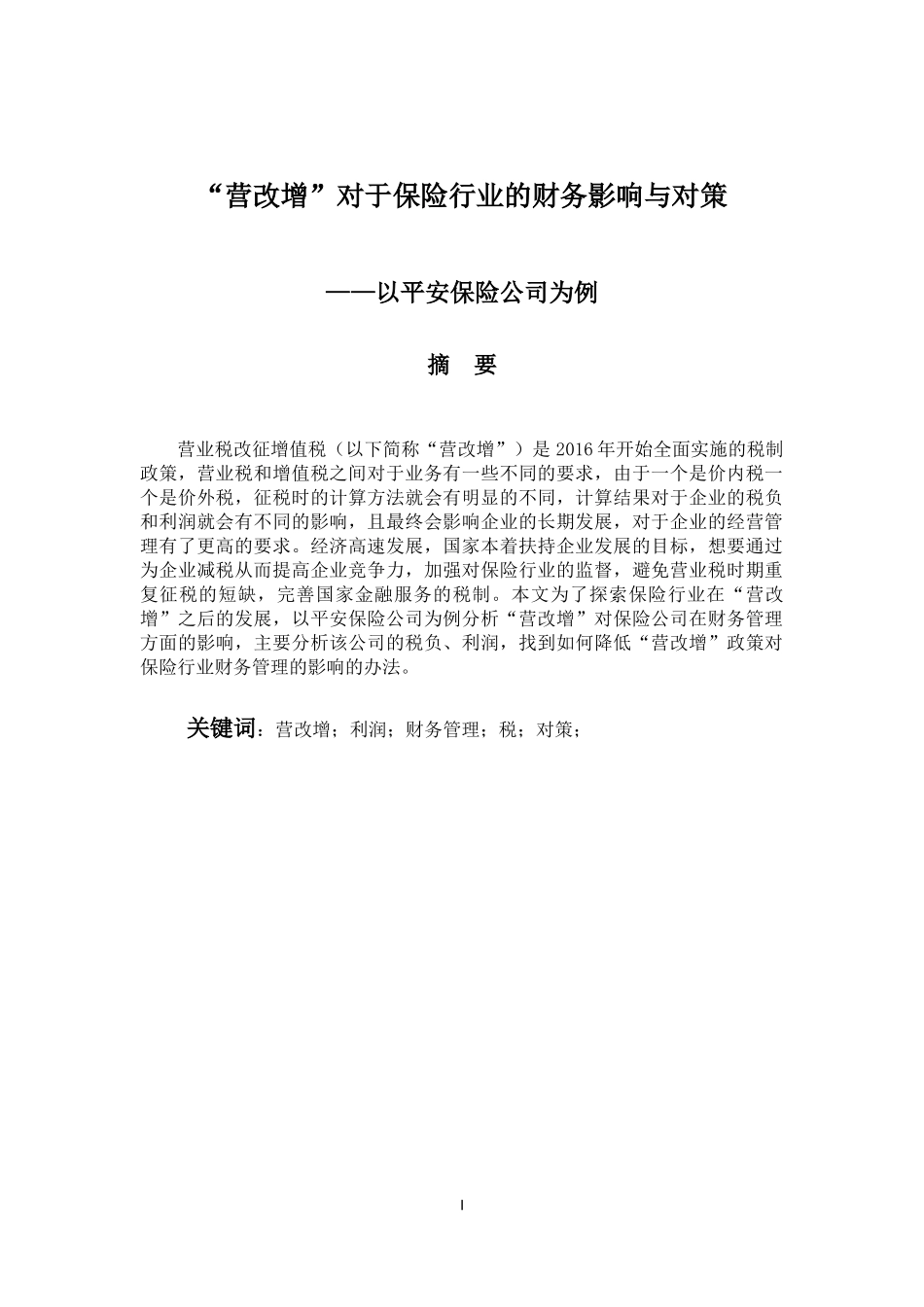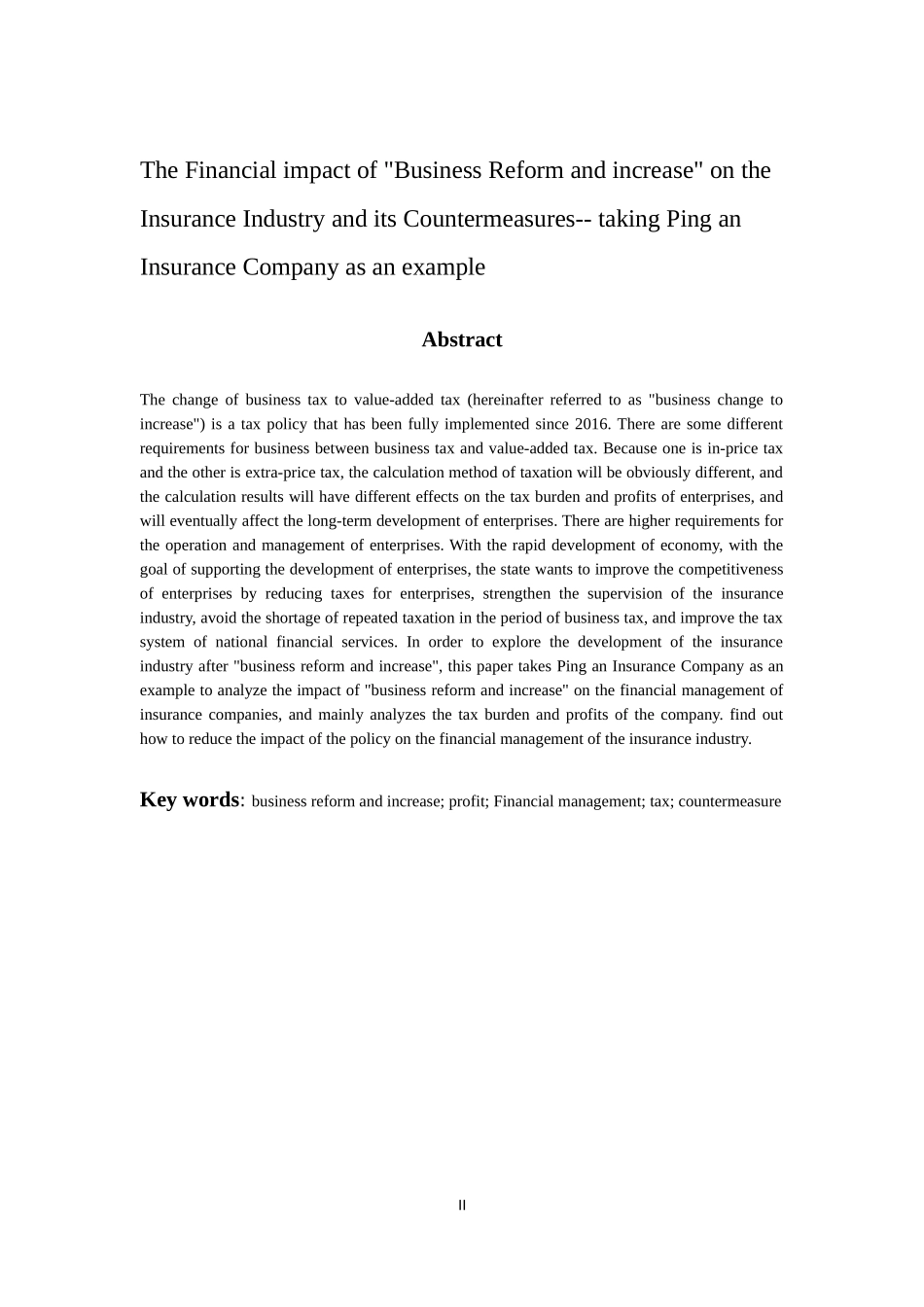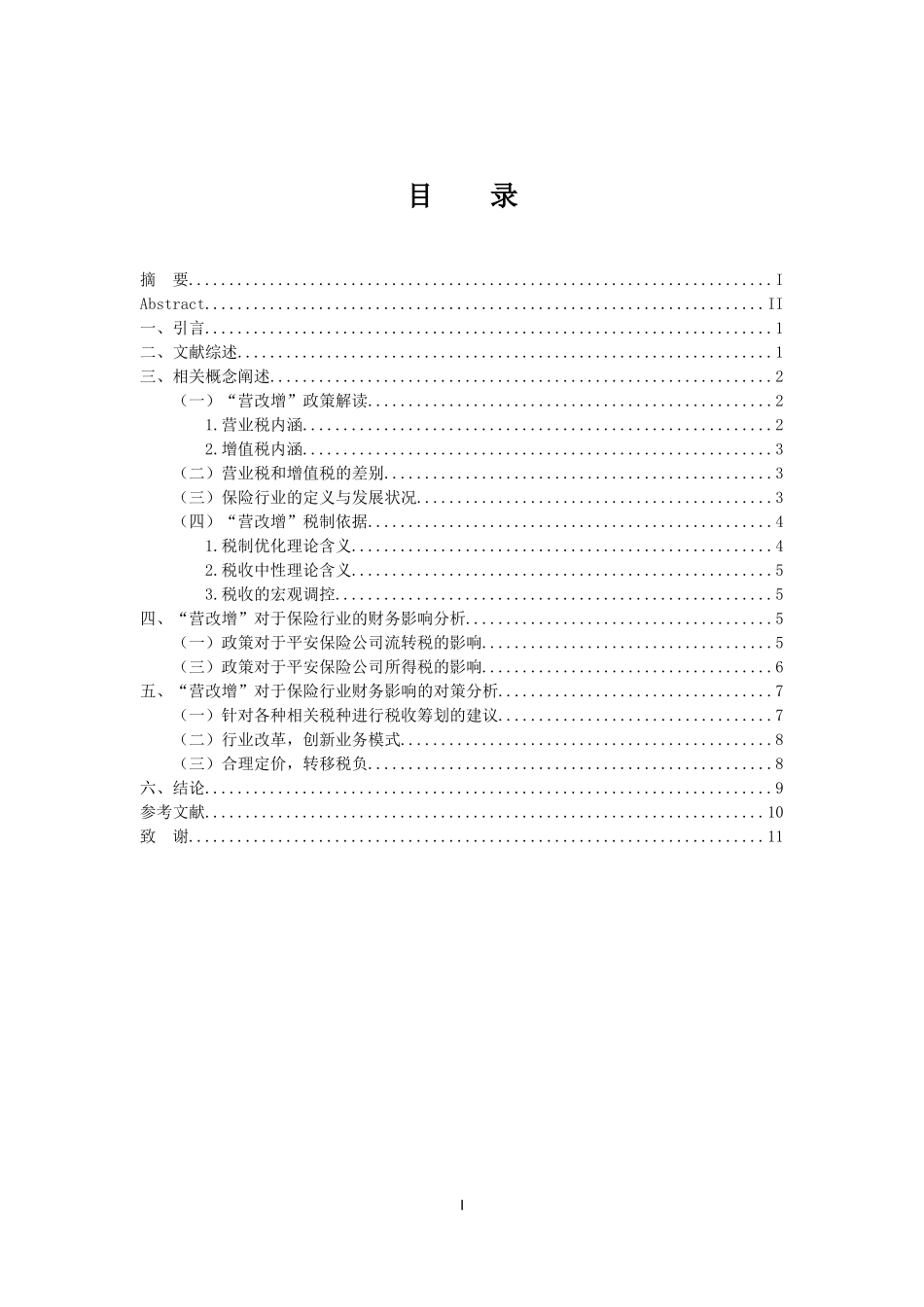“营改增”对于保险行业的财务影响与对策——以平安保险公司为例摘 要营业税改征增值税(以下简称“营改增”)是 2016 年开始全面实施的税制政策,营业税和增值税之间对于业务有一些不同的要求,由于一个是价内税一个是价外税,征税时的计算方法就会有明显的不同,计算结果对于企业的税负和利润就会有不同的影响,且最终会影响企业的长期发展,对于企业的经营管理有了更高的要求。经济高速发展,国家本着扶持企业发展的目标,想要通过为企业减税从而提高企业竞争力,加强对保险行业的监督,避免营业税时期重复征税的短缺,完善国家金融服务的税制。本文为了探索保险行业在“营改增”之后的发展,以平安保险公司为例分析“营改增”对保险公司在财务管理方面的影响,主要分析该公司的税负、利润,找到如何降低“营改增”政策对保险行业财务管理的影响的办法。关键词:营改增;利润;财务管理;税;对策;IThe Financial impact of "Business Reform and increase" on the Insurance Industry and its Countermeasures-- taking Ping an Insurance Company as an exampleAbstractThe change of business tax to value-added tax (hereinafter referred to as "business change to increase") is a tax policy that has been fully implemented since 2016. There are some different requirements for business between business tax and value-added tax. Because one is in-price tax and the other is extra-price tax, the calculation method of taxation will be obviously different, and the calculation results will have different effects on the tax burden and profits of enterprises, and will eventually affect the long-term development of enterprises. There are higher requirements for the operation and management of enterprises. With the rapid development of economy, with the goal of supporting the development of enterprises, the state wants to improve the competitiveness of enterprises by reducing taxes for enterprises, strengthen the supervision of the insurance industry, avoid the shortage of repeated taxation in...


